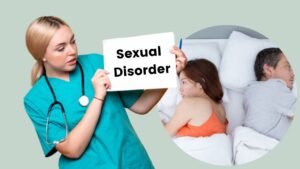Sexual weakness, commonly referred to as sexual dysfunction, is a condition that can affect individuals of all genders and at any stage of life. It manifests in various forms, such as low libido, erectile dysfunction, premature ejaculation, difficulty achieving orgasm, or a general dissatisfaction with sexual experiences. Sexual health is a vital component of overall well-being, and any disruption in this aspect can lead to physical, emotional, and relational challenges. This comprehensive article explores the causes, prevention strategies, and treatment options for sexual weakness, offering a holistic understanding of the issue.

Causes of Sexual Weakness
Sexual weakness arises from a complex interplay of physical, psychological, and lifestyle factors. Understanding these causes is the first step toward addressing the problem effectively.
1. Physical Causes
- Hormonal Imbalances: Hormones play a pivotal role in sexual function. Low testosterone levels in men and hormonal changes in women (e.g., during menopause or after childbirth) can significantly affect sexual desire and performance. Disorders such as hypothyroidism or hyperprolactinemia can also contribute.
- Chronic Illnesses: Conditions such as diabetes, hypertension, and cardiovascular diseases impair blood flow and nerve function, essential for sexual arousal and performance. Neurological conditions like Parkinson’s disease or multiple sclerosis may disrupt the signals between the brain and reproductive organs.
- Medications and Treatments: Certain medications, including antidepressants, antipsychotics, and drugs for high blood pressure, can dampen libido or cause erectile dysfunction. Cancer treatments like chemotherapy and radiation can also negatively impact sexual health.
- Substance Abuse: Alcohol, nicotine, and recreational drugs such as cocaine or methamphetamines can reduce sexual performance by affecting blood flow, hormone levels, and neural function.
- Age-Related Decline: With age, men and women may experience reduced sexual function due to decreased hormonal production, reduced vascular elasticity, and overall declining physical fitness.
2. Psychological Causes
- Stress and Anxiety: Daily life stressors, including work pressure and financial burdens, can lead to a significant decline in sexual interest and performance. Performance anxiety, in particular, can create a cycle of fear and failure during intimate moments.
- Depression: Individuals with depression often experience low energy levels, reduced self-esteem, and diminished interest in pleasurable activities, including sex.
- Relationship Issues: Conflicts, poor communication, or a lack of emotional intimacy between partners can lead to sexual dissatisfaction.
- Trauma and Abuse: Past experiences of sexual abuse or trauma can create long-term psychological barriers to healthy sexual function.
3. Lifestyle Factors
- Poor Diet: Diets high in processed foods, sugars, and unhealthy fats can lead to obesity, hormonal imbalances, and reduced vascular health, all of which negatively affect sexual function.
- Lack of Exercise: Sedentary habits contribute to poor cardiovascular health, reduced stamina, and obesity, which can impair sexual performance.
- Sleep Deprivation: Inadequate sleep disrupts hormone regulation and energy levels, reducing libido and sexual performance.
- Excessive Screen Time: Overuse of screens, particularly late at night, can interfere with sleep patterns and intimacy with partners.

Prevention of Sexual Weakness
Prevention is always better than cure. By adopting healthy habits and addressing potential risk factors, individuals can significantly reduce the likelihood of developing sexual dysfunction.
1. Maintain a Healthy Lifestyle
- Balanced Diet: A diet rich in fruits, vegetables, lean proteins, whole grains, and healthy fats supports hormone production and vascular health. Foods like nuts, seeds, avocados, and fish are particularly beneficial for sexual health.
- Regular Exercise: Physical activity improves blood circulation, stamina, and overall fitness, which are essential for sexual performance. Cardiovascular exercises, in particular, help maintain a healthy heart and blood vessels.
- Hydration: Staying hydrated ensures optimal blood flow and energy levels.
- Avoid Harmful Substances: Limit alcohol intake and quit smoking to preserve vascular and hormonal health.
2. Manage Stress Effectively
- Mindfulness Practices: Activities like yoga, meditation, and deep-breathing exercises can help reduce stress and enhance mental clarity.
- Time Management: Prioritize tasks and set realistic goals to avoid feeling overwhelmed.
- Seek Support: Talk to a trusted friend, family member, or therapist about stressors to gain perspective and relief.
3. Foster Healthy Relationships
- Open Communication: Discussing desires, concerns, and boundaries with a partner fosters emotional intimacy and enhances sexual satisfaction.
- Quality Time: Spending uninterrupted time together strengthens the bond and rekindles romance.
4. Regular Health Check-Ups
- Monitor blood pressure, cholesterol, and blood sugar levels regularly.
- Seek medical advice for symptoms like low libido, fatigue, or mood swings, as they may indicate hormonal imbalances.
5. Prioritize Sleep
- Create a bedtime routine and stick to it.
- Avoid caffeine, alcohol, and heavy meals before bed.
- Limit screen time to promote better sleep hygiene.

Treatment for Sexual Weakness
While prevention is ideal, those already experiencing sexual weakness have numerous treatment options available. The choice of treatment depends on the underlying cause, the severity of the symptoms, and individual preferences.
1. Medical Treatments
- Medications:
- Men with erectile dysfunction may benefit from phosphodiesterase inhibitors such as Sildenafil (Viagra) or Tadalafil (Cialis). These drugs enhance blood flow to the penis.
- Hormone replacement therapy can address low testosterone in men or hormonal imbalances in women.
- Surgical Interventions: In severe cases of erectile dysfunction, penile implants or vascular surgeries may be recommended.
- Treatment of Underlying Conditions: Managing chronic illnesses like diabetes or hypertension can significantly improve sexual function.
2. Therapy and Counseling
- Sex Therapy: Licensed sex therapists can help address psychological barriers, improve communication, and offer practical strategies to enhance sexual experiences.
- Cognitive Behavioral Therapy (CBT): CBT is effective for managing anxiety, depression, and trauma-related issues impacting sexual health.
- Couples Therapy: For those experiencing relational conflicts, couples therapy can provide tools to resolve issues and rebuild intimacy.
3. Alternative and Complementary Remedies
- Herbal Supplements:
- Ginseng, Maca root, and Ashwagandha have been traditionally used to boost libido and stamina. Always consult a doctor before starting any supplement.
- Acupuncture: This ancient practice may help improve blood flow and reduce stress, indirectly benefiting sexual health.
- Pelvic Floor Exercises: Strengthening pelvic muscles through Kegel exercises can enhance sexual function and satisfaction for both men and women.
4. Lifestyle Adjustments
- Physical Activity: Incorporate strength training and flexibility exercises to improve overall fitness and energy levels.
- Dietary Changes: Include libido-boosting foods like oysters, dark chocolate, and watermelon in your diet.
- Mind-Body Practices: Engage in activities like Tai Chi or dance to improve body awareness and confidence.

When to Seek Medical Advice
It is essential to consult a healthcare professional if:
- Symptoms persist or worsen despite lifestyle changes.
- Pain or discomfort occurs during sexual activity.
- Sexual dysfunction leads to significant emotional distress or relationship strain.
- Symptoms appear to be linked to another medical condition or medication side effects.
Conclusion
Sexual weakness is a common yet treatable condition that can significantly impact an individual’s quality of life. By understanding its causes, adopting preventative strategies, and seeking appropriate treatment, individuals can regain confidence, satisfaction, and intimacy in their relationships. Open communication with partners and healthcare providers is crucial for addressing the issue effectively. Remember, sexual health is a vital component of overall well-being, and taking proactive steps to address challenges can lead to a more fulfilling life.
The relationship between diabetes and sexual dysfunction:
Diabetes and sexual dysfunction are closely related due to the physiological, hormonal, and psychological effects of the disease. Below is an overview of this relationship for both men and women:
In Men:
- Erectile Dysfunction (ED):
- Prevalence: ED is a common complication of diabetes, affecting up to 50–75% of men with the condition.
- Causes:
- Vascular Issues: Diabetes can damage blood vessels, impairing blood flow to the penis.
- Neuropathy: High blood sugar levels can damage nerves, affecting the signals required for an erection.
- Hormonal Imbalances: Diabetes may lower testosterone levels, which are crucial for libido and erectile function.
- Retrograde Ejaculation:
- Nerve damage can cause semen to flow backward into the bladder instead of out through the penis during ejaculation.
- Reduced Libido:
- Stress, depression, and other psychological effects of managing diabetes can reduce sexual desire.
In Women:
- Reduced Vaginal Lubrication:
- High blood sugar levels may affect vaginal secretions, leading to dryness and discomfort during intercourse.
- Decreased Sexual Desire and Arousal:
- Neuropathy and hormonal imbalances can impair sexual arousal by affecting blood flow and nerve sensitivity in the genital area.
- Pain During Intercourse:
- Vaginal dryness or infections, more common in diabetic women, can make sex painful.
- Infections:
- Women with diabetes are more prone to yeast infections and urinary tract infections, which can disrupt sexual activity.
Shared Factors:
- Cardiovascular Health:
- Poor heart health, common in diabetes, contributes to sexual dysfunction due to reduced blood flow.
- Psychological Impact:
- Anxiety, depression, and body image concerns related to diabetes management can impact sexual performance and satisfaction.
- Medications:
- Some medications for diabetes or related conditions (e.g., hypertension) may have side effects that contribute to sexual dysfunction.
Management and Treatment:
- Blood Sugar Control:
- Maintaining optimal glucose levels can prevent or reduce damage to blood vessels and nerves.
- Medications and Therapies:
- Men: PDE5 inhibitors (e.g., sildenafil) for ED.
- Women: Lubricants, vaginal estrogen creams, or other hormone therapies.
- Lifestyle Changes:
- Regular exercise, a healthy diet, and weight management improve cardiovascular health and hormone levels.
- Psychological Support:
- Counseling or therapy for stress, depression, or relationship issues.
- Medical Interventions:
- For severe cases, men may consider penile implants, and women may consult specialists for tailored hormonal treatments.
Managing sexual dysfunction in individuals with diabetes involves a comprehensive approach that addresses both physiological and psychological factors. Here are specific management strategies and treatment options:
1. Lifestyle Modifications:
- Blood Sugar Control: Maintaining optimal blood glucose levels can prevent or reduce nerve and blood vessel damage, thereby improving sexual function.
- Regular Physical Activity: Engaging in exercise enhances cardiovascular health, boosts energy levels, and reduces stress, all of which can positively impact sexual health.
- Healthy Diet: Consuming a balanced diet supports overall health and aids in blood sugar management.
- Limit Alcohol and Quit Smoking: Reducing alcohol intake and avoiding tobacco can improve circulation and nerve function, essential for sexual health.
2. Medical Treatments:
- Phosphodiesterase Type 5 Inhibitors (PDE5i): Medications such as sildenafil (Viagra), tadalafil (Cialis), and vardenafil (Levitra) are commonly prescribed for erectile dysfunction (ED) in men. These drugs enhance blood flow to the penis, facilitating erections. However, men with diabetes may experience reduced responsiveness to these treatments. Boston University Medical Center
- Intracavernous Injections: For men who do not respond to oral medications, injections of vasoactive substances like alprostadil directly into the penile tissue can induce erections. Combination therapies, such as a mix of papaverine, phentolamine, and alprostadil, may be effective for non-responders. PubMed
- Hormone Therapy: In cases of hormonal imbalances, testosterone replacement therapy may be considered for men, while estrogen creams or other hormonal treatments might be appropriate for women. It’s essential to consult a healthcare provider to evaluate suitability and monitor potential side effects.
3. Mechanical Devices:
- Vacuum Erection Devices (VEDs): These devices create a vacuum around the penis, drawing blood into the erectile tissue and inducing an erection, which is then maintained with a constriction ring.
- Penile Implants: Surgical insertion of malleable or inflatable devices into the penis can provide a permanent solution for ED in men who have not had success with other treatments.
4. Psychological Support:
- Counseling and Therapy: Sexual dysfunction can have psychological components, including stress, anxiety, or depression. Engaging in individual or couples therapy with a professional can address these issues and improve sexual health.
5. Communication:
- Open Dialogue with Healthcare Providers: Discussing sexual health openly with a healthcare provider ensures access to appropriate treatments and support.
- Partner Communication: Maintaining open communication with a partner about sexual concerns can reduce anxiety and improve intimacy.
It’s important to note that while these treatments can be effective, individual responses may vary, and some men with diabetes may experience reduced responsiveness to certain treatments.
Boston University Medical Center Consulting with a healthcare professional is crucial to determine the most appropriate and personalized treatment plan.
Recent Insights on Erectile Dysfunction and Treatment Options
El porqué del silencio en torno a la disfunción eréctil y la andropausia

New York PostThe 10 best ED treatments, plus experts answer your FAQsil y a 54 joursThe SunThe 4 best supplements for penis health – to help reduce risk of sex-destroying conditionil y a 51 jours





[…] Click here to learn more about this topic in a related article. […]
[…] Click here to learn more about this topic in a related article. […]
[…] Click here to learn more about this topic in a related article. […]